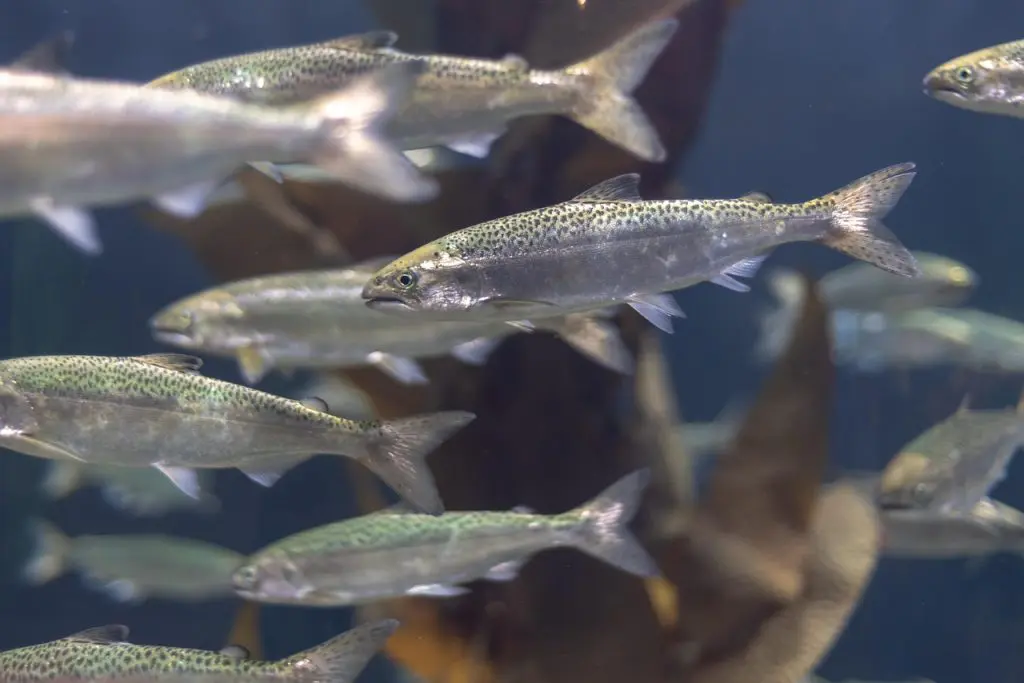
Ireland’s fishing industry is calling for immediate EU action, including trade sanctions, against non-EU coastal nations that are overfishing mackerel, one of the country’s most valuable fish stocks, amid growing fears that the stock is on the brink of collapse. Mackerel Stock at Risk of Collapse The International Council for the Exploration of the Sea […]
Ireland’s fishing industry is calling for immediate EU action, including trade sanctions, against non-EU coastal nations that are overfishing mackerel, one of the country’s most valuable fish stocks, amid growing fears that the stock is on the brink of collapse.
The International Council for the Exploration of the Sea (ICES) has advised the European Commission to reduce the total allowable catch of mackerel by 70% in 2026, warning that without a binding agreement between fishing nations, mackerel fishing could be halted entirely by 2027.
This dramatic reduction would have a devastating impact on the Irish fishing sector, with estimated losses of between €60 million and €80 million. The European Commission has acknowledged that failure to act could result in zero recommended catches within two years.
A Commission spokesperson told RTÉ News there is an urgent need to reduce fishing mortality to the levels advised by ICES and that immediate action is needed to avoid irreversible damage to the stock.
At the centre of the crisis are unilateral quotas set by non-EU coastal states, including Norway, Iceland, the Faroes, and Russia, which have exceeded scientifically advised limits for more than a decade.
According to ICES, these unilateral quotas have resulted in average catches 39% above recommended sustainable levels since 2010.
Upcoming negotiations among coastal states, including the EU, UK, Norway, Iceland, the Faroes, and Greenland, under the North East Atlantic Fisheries Commission will attempt to reach a long-overdue comprehensive quota-sharing agreement.
However, Irish fishing leaders have expressed deep frustration with what they see as a lack of enforcement from Brussels.
Dominic Rihan, CEO of the Killybegs Fishermen’s Organisation (KFO), said the Commission’s statements provide little reassurance:
“It merely reiterates the need for a sharing arrangement without any indication what will happen if no agreement is reached.”
Rihan called for clear consequences if talks fail, including the implementation of EU trade sanctions and the revocation of fishing access granted to non-EU vessels in other fisheries.
He also urged the EU to introduce a financial support package to help Irish and EU pelagic fleets survive the expected quota reductions, saying the industry is at risk of going out of business due to actions by other coastal states.
Aodh O’Donnell, CEO of the Irish Fish Producers Organisation (IFPO), echoed these concerns, stating:
“Without sanctions, these coastal states will fish this stock to collapse… years of unchecked overfishing by Norway, Iceland, the Faroes and the Russian Federation have pushed this stock to the brink.”
He added that the failure of some nations to sign up to a recent EU compromise proposal during talks in Clonakilty shows that more assertive measures are necessary.
O’Donnell is calling for:
Immediate trade sanctions,
Suspension of access to EU markets and waters for overfishing states,
And an enforceable, science-based sharing agreement that ensures the long-term sustainability of mackerel stocks.
At a recent meeting in Killybegs, fish processors and fleet representatives described the industry as standing at a “cliff-edge”, and called for greater political support at both Irish and EU levels.
Minister of State for Fisheries, Timmy Dooley, who attended the meeting, said the Irish government has repeatedly raised concerns about overfishing by non-EU coastal states.
“I will continue to highlight this critical issue for our fishers and engage intently with the European Commission and other Member States on possible actions to protect our stocks.”
The outcome of the upcoming coastal states talks will be pivotal. Without a binding agreement and immediate reduction in mackerel catches, Ireland risks not only losing hundreds of millions of euros in revenue but also facing the collapse of a fishery that sustains coastal communities and thousands of jobs.
The fishing industry is clear: without enforceable limits and trade consequences for those who violate them, mackerel stocks may not survive, and neither will the fleets that depend on them.
The crisis surrounding mackerel overfishing highlights a critical moment for Ireland’s fishing industry and the broader European marine economy. Without immediate, enforceable action, including sanctions, binding agreements, and EU leadership, one of Ireland’s most valuable fish stocks may collapse. The science is clear, the warnings are stark, and the time to act is now.
The coming negotiations must deliver more than words, they must produce real commitments from all coastal states to respect scientifically advised quotas. Failure to do so risks not only ecological devastation but the livelihoods of thousands of families who depend on sustainable, responsible fishing.
At All-Ireland Sustainability, we’re committed to building a greener, fairer island, together. Stay informed on the latest environmental initiatives, community action, and policy developments shaping sustainability across Ireland, North and South.
👉 Sign up for our newsletter today and be the first to hear about upcoming events, expert insights, and ways to get involved.
Whether you’re a seasoned advocate or just starting your journey, new members are always welcome.
Subscribe now and be part of the All-Ireland Sustainability Membership.